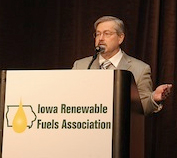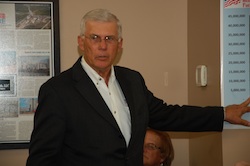 While the shower room favorite the loofah is known for exfoliating your skin to a radiant glow, researchers might have found a way to pair them with bacteria to turn waste into power. This article from the American Chemical Society’s journal Environmental Science & Technology says loofahs and bacteria can create a power-generating microbial fuel cell (MFC).
While the shower room favorite the loofah is known for exfoliating your skin to a radiant glow, researchers might have found a way to pair them with bacteria to turn waste into power. This article from the American Chemical Society’s journal Environmental Science & Technology says loofahs and bacteria can create a power-generating microbial fuel cell (MFC).
Shungui Zhou and colleagues note that MFCs, which harness the ability of some bacteria to convert waste into electric power, could help address both the world’s growing waste problem and its need for clean power. Current MFC devices can be expensive and complicated to make. In addition, the holes, or pores, in the cells’ electrodes are often too small for bacteria to spread out in. Recently, researchers have turned to plant materials as a low-cost alternative, but pore size has still been an issue. Loofahs, which come from the fully ripened fruit of loofah plants, are commonly used as bathing sponges. They have very large pores, yet are still inexpensive. That’s why Zhou’s team decided to investigate their potential use in MFCs.
When the scientists put nitrogen-enriched carbon nanoparticles on loofahs and loaded them with bacteria, the resulting MFC performed better than traditional MFCs. “This study introduces a promising method for the fabrication of high-performance anodes from low-cost, sustainable natural materials,” the researchers state.
So re-energize with your loofah… and just know that it might one day solve the world’s energy problems.













